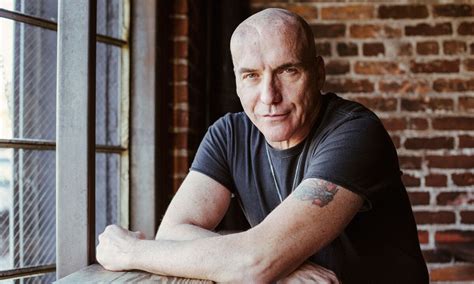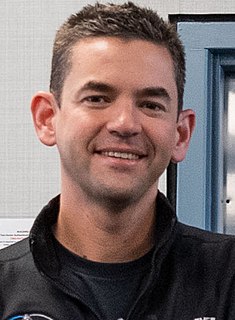A Quote by Paul Davies
In time, [a Martian] colony would grow to the point of being self- sustaining. When this stage was reached, humanity would have a precious insurance policy against catastrophe at home. During the next millennium there is a significant chance that civilization on Earth will be destroyed by an asteroid, a killer plague or a global war. A Martian colony could keep the flame of civilization and culture alive until Earth could be reverse-colonized from Mars.
Quote Topics
Against
Alive
Asteroid
Being
Catastrophe
Chance
Civilization
Colony
Could
Culture
Destroyed
Earth
Flame
Global
Grow
Home
Humanity
Insurance
Insurance Policy
Keep
Killer
Mars
Martian
Millennium
Next
Plague
Point
Policy
Precious
Reached
Reverse
Self
Significant
Stage
Sustaining
Time
Until
War
Will
Would
Related Quotes
We imagine going to the moon and planting a flag, going to an asteroid and mining, going to Mars and setting up a colony. And I think that expansionist mentality is very self-destructive, especially given the kind of precarious relationship we now have to the ecosystem here on Earth, because it allows us to imagine that Earth is disposable.
Once the threshold is crossed when there is a self-sustaining level of life in space, then life's long-range future will be secure irrespective of any of the risks on Earth. Will this happen before our technological civilization disintegrates, leaving this as a might-have-been? Will the self-sustaining space communities be established before a catastrophe sets back the prospect of any such enterprise, perhaps foreclosing it forever? We live at what could be a defining moment for the cosmos.
Here's an easy one: "Race is an entirely social construct." No, it's partially one, depending on how any given society seeks to define it and its implications. But there are basic things such as skin color and hair texture. Even a Martian who'd had no exposure to human "social constructs" would be able to spot those differences. But no Martian, as hard as he tried, could point at a "culture" or to "equality." Those are the social constructs. Those can't be measured in the same way as human DNA.
There is a one-in-300 chance that Earth will be struck on March 16, 2880, by an asteroid large enough to destroy civilization and possibly cause the extinction of the human race. But, on the bright side, Prince could re-release his hit song with the new refrain 'We're gonna party like its twenty-eight seventy-nine.'
Nor do I take into account a danger of starting a chain reaction of a scope great enough to
destroy part or all of the planet...But it is not necessary to imagine the earth being destroyed like a nova by a stellar explosion to understand vividly the grow ing scope of atomic war and to recognize that unless another war is prevented it is likely to bring destruction on a scale never before held possible, and even now hardly conceived, and that little civilization would survive it.
The frontier in space, embodied in the space colony, is one in which the interactions between humans and their environment is so much more sensitive and interactive and less tolerant of irresponsibility than it is on the whole surface of the Earth. We are going to learn how to relate to the Earth and our own natural environment here by looking seriously at space colony ecologies.
I used to be a strong believer that we would eventually colonize the solar system the way it's been done in science fiction many, many times: bases on the moon, Mars colonized, move out to the outer planets, then we go to the next solar system and build a colony there. I don't know now - I'm not as convinced that's the way it's going to pan out.




































